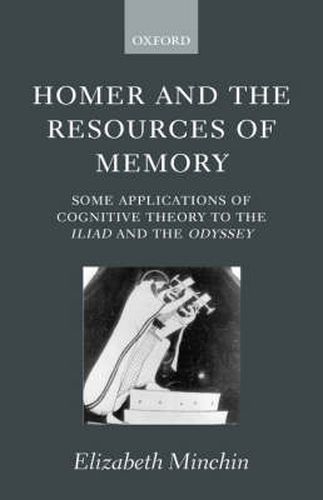Readings Newsletter
Become a Readings Member to make your shopping experience even easier.
Sign in or sign up for free!
You’re not far away from qualifying for FREE standard shipping within Australia
You’ve qualified for FREE standard shipping within Australia
The cart is loading…






How could a poet who worked in an oral tradition maintain the momentum of his song? How could a poet such as Homer weave a tale which filled an evening or, perhaps, a whole long night? The answer lies in memory, as we have known. But this bald explanation does not do justice either to the complexity of memory or to the richness of the Homeric epics. Now that so much more information has become available to us, from cognitive psychology and linguistics, about the workings of the mind, we can identify with greater precision those contributions which memory makes to the composition and performance of oral traditional song. In this study the author shows that the demands made on the poet, who relies neither on rote memory nor on written notes, have led him adopt to certain memory-based strategies which have left their traces in the text. What we discover is that the poet in an oral tradition makes intense and creative use of those resources of memory, which are available to us\nall - episodic memory, auditory memory, visual memory, and spatial memory - to assist him both in the preparation of his song and at the moment of performance.
$9.00 standard shipping within Australia
FREE standard shipping within Australia for orders over $100.00
Express & International shipping calculated at checkout
Stock availability can be subject to change without notice. We recommend calling the shop or contacting our online team to check availability of low stock items. Please see our Shopping Online page for more details.
How could a poet who worked in an oral tradition maintain the momentum of his song? How could a poet such as Homer weave a tale which filled an evening or, perhaps, a whole long night? The answer lies in memory, as we have known. But this bald explanation does not do justice either to the complexity of memory or to the richness of the Homeric epics. Now that so much more information has become available to us, from cognitive psychology and linguistics, about the workings of the mind, we can identify with greater precision those contributions which memory makes to the composition and performance of oral traditional song. In this study the author shows that the demands made on the poet, who relies neither on rote memory nor on written notes, have led him adopt to certain memory-based strategies which have left their traces in the text. What we discover is that the poet in an oral tradition makes intense and creative use of those resources of memory, which are available to us\nall - episodic memory, auditory memory, visual memory, and spatial memory - to assist him both in the preparation of his song and at the moment of performance.